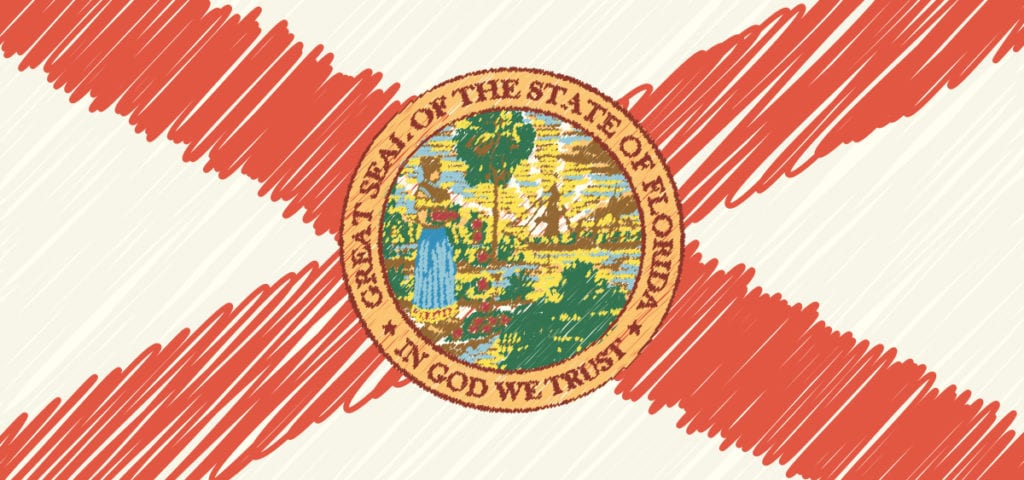The Justices determined that a proposed ballot initiative to legalize cannabis in the state was misleading due to an unclear use of the word “use.”
Florida Supreme Court Rules Cannabis Legalization Ballot Question ‘Misleading’

Full story continued below.
Advertisement
The Florida Supreme Court on Thursday ruled that a proposed ballot initiative to legalize cannabis in the state was misleading due to an unclear use of the word “use,” the Miami Herald reports. The case, brought by state Attorney General Ashley Moody, challenges a 2019 proposed constitutional amendment.
The 75-word summary of the proposal that would have appeared on ballots indicated that the amendment would regulate cannabis “for limited use and growing by persons twenty-one years of age or older.” In the 5-2 ruling, the Justices determined that could mean the initiative’s supporters were claiming to set limits on the amount of cannabis an individual could personally consume; however, the justices ruled that the text of the amendment set no such limits.
“The ballot summary plainly tells voters that the proposed amendment ‘limit[s]’ the personal use —i.e., consumption—of recreational marijuana by age-eligible persons. But the proposed amendment itself does not do so. The relevant provision in the proposed amendment is section (c), titled ‘Personal use of cannabis.’ That section provides in part that it shall not be unlawful for an age-eligible person to engage in certain acts including ‘using . . . cannabis, and cannabis products in quantities reasonably indicative of personal use or for use by household members.’ Even if this language, when viewed in isolation, could somehow be argued to establish a limitation on personal use in an amount equal to a ‘quantit[y] reasonably indicative of personal use or for use by household members,’ any such argument is undermined by the fact that the same section of the proposed amendment further provides that the enumerated quantities ‘are minimum quantities, subject to increase by state, county, or municipal legislation, but not subject to decrease.’”—Florida Supreme Court advisory opinion, June 17, 2021
The initiative backer, attorney Michael Minardi, said his group—Sensible Florida—has alternative adult-use legalization proposals prepared and he called the Supreme Court opinion “really a welcome thing” after a two-year wait. The organization had collected just 29,172 of the necessary 891,589 valid signatures required to put the issue to voters prior to the court challenge.
He indicated plans to put the issue to Florida voters during next year’s midterm elections.
Get daily news insights in your inbox. Subscribe
End
